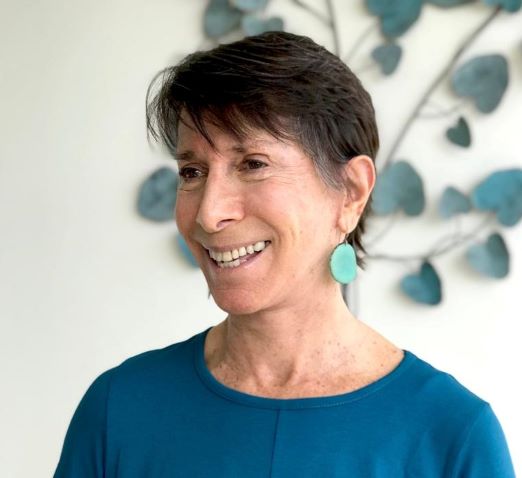Fredda Ronen
Credentials
Finances
- 3 Louis Pasteur st
- Jaffa, 6803603
Fredda Ronen
 Verified
Verified
Credentials
Clinical Psychologist
PhD
Finances
250-350 NIS
None
Sliding Scale
ABOUT THE THERAPIST
I am an American born Ph.D clinical psychologist with 30 years of experience. I help adults and adolescents suffering from all kinds of emotional distress such as anxiety, depression, life adjustments/ crises, relationship issues and stress management. In the past, I have worked as a psychologist at Sheba hospital, with the Maccabi Health Fund , and in the Institute for Psychotherapy. My approach is psychodynamic/interpersonal.
I believe that in the therapy room, its not just about who you are and what you bring in to work on, but how we relate to each other in the therapy space. In my many years of experience, I've found the best therapy happens when there's good chemistry and we're both invested in creating a safe place for growth and change. My goal is to help you have the life you want for yourself. In our first interview, we'll explore what you are hoping to work on and whether we will be a good team to get you where you want to be.
I believe that psychotherapy shouldn't be prohibitively expensive, but affordable to all who need it and my prices are set accordingly. I am bilingual (English and Hebrew) and work both online as well as in my Savyon clinic.
QUALIFICATIONS
PhD
New York University
1989
Degree
PhDEducation
New York UniversityYear of Graduation
1989Years in Practice
33
Mumche Category
Clinical Psychologist
Mumche License Number
2033
ADDITIONAL CREDENTIALS
certified kundelini yoga instructor
DISTANCE COUNSELING
Telephone Counseling, Online Therapy
PRIMARY SPECIALTIES
Adjustments
Anxiety / Panic
Depression
Self-Esteem
Stress Management
ADDITIONAL SPECIALTIES
Family Issues
Life Transitions
Parenting Issues / Training
Postpartum Depression
Psychosomatic Disorders
CLIENT FOCUS
Population
Adolescents
Adults
Men
Women
Languages Spoken
Hebrew
English
TREATMENT APPROACH
Body-Mind PsychotherapyBody-mind psychotherapy is an integrative approach to psychological treatment that draws from both psychotherapeutic and somatic/body-based approaches. It emphasizes the interconnection between physical, emotional, cognitive and spiritual aspects of being. This approach seeks to help individuals explore how physical sensations, emotions, thoughts and beliefs influence their behavior and well-being. Through this exploration, individuals can gain insight into how the body and mind interact to create patterns of behavior, and how those patterns can be changed to promote healing and wellness.
Interpersonal Psychotherapy (IPT)IPT focuses on the relationships and interactions an individual has with others. It is based on the premise that the way that we interact with others can have a significant impact on our emotional well-being. During IPT sessions, the practitioner will work with the client to identify patterns of behavior and communication that may be contributing to their emotional distress. They will then help the client learn new ways of interacting with others, as well as teach them coping skills to manage difficult emotions. It is a time-limited therapy, typically lasting between 12-16 weeks, with the goal of helping the client develop long-term coping skills.
Mindfulness-Based Cognitive Therapy (MBCT)Mindfulness-Based Cognitive Therapy (MBCT) is a form of therapy that combines cognitive behavioral therapy with mindfulness practices. It is based on the idea that our thoughts, emotions, and physical sensations can affect our mental health. MBCT helps individuals become aware of their thoughts, emotions, and physical sensations in order to gain insight and control over them. MBCT helps clients learn how to recognize their sense of being and see themselves as separate from their thoughts and moods. This separation can free the client from thought patterns in which the repeated negative messages may be dominating the client’s focus. After developing an awareness of the separation between thoughts, emotions, and the self, people in treatment may find that while the self and the emotions may exist simultaneously, they do not have to exist within the same dimension. The healing can take place when one learns how to interject positive thoughts into negative moods and thereby create a shift in mood.
Psychodynamic TherapyPsychodynamic therapy is a form of therapy that focuses on the unconscious mind and how it affects behavior. It works to help people understand and work through past experiences and feelings that may be causing difficulties in the present. This type of therapy encourages individuals to explore their emotions, relationships, and behaviors in order to gain insight into their current difficulties. It can help individuals better understand themselves and their motivations, and gain insight into how past events have impacted their current lives. People tend to develop defense mechanisms when faced with challenges in life. Defense mechanisms may keep painful feelings, memories, and experiences in the unconscious. A few common defense mechanisms include: denial, repression, and rationalization. Psychodynamic therapists encourage people to speak freely about their emotions, desires, and fears. Being open may help uncover vulnerable feelings that have been pushed out of conscious awareness. According to psychodynamic theory, behavior is influenced by unconscious thought. Once painful feelings are brought forth and processed, the defense mechanisms are no longer needed and a person in treatment can start changing unhelpful patterns when coping with life’s challenges.
Relational PsychotherapyRelational psychotherapy is a form of psychotherapy that focuses on a person’s relationships with others and the dynamics between them. It emphasizes the importance of the therapeutic relationship between the client and the therapist, and it explores the meaning and purpose of relationships in the client’s life. Relational psychotherapy seeks to understand how the client’s past relationships shape their current experiences and how the client interacts with others. The goal is to help the person develop healthier relationships and better communication skills so they can become more emotionally connected to others.
SERVICES OFFERED
Individual Therapy
Consultation
Hadrachat Horim

 Verified
Verified

